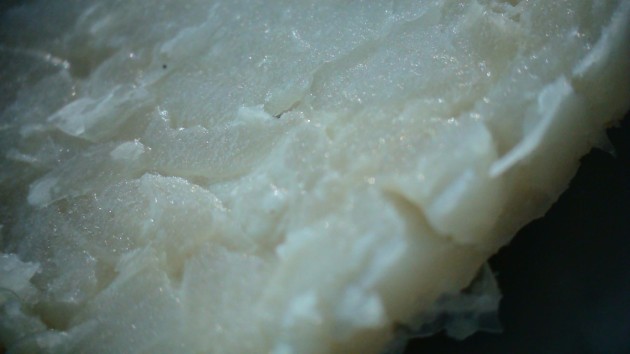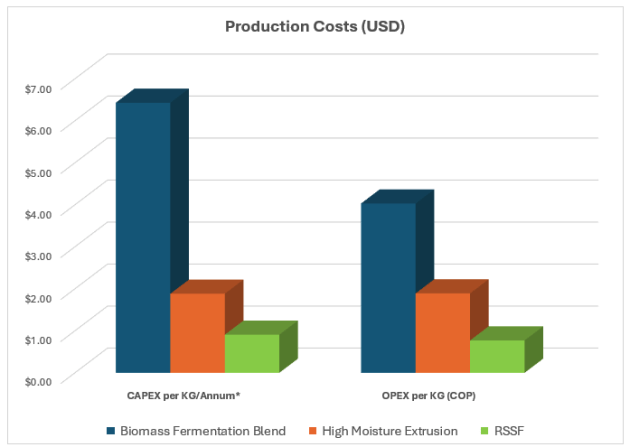Eighth Day Foods says a major advancement in its patented rapid solid state fermentation technology opens the door for a whole range of pulses and seeds to be used as well as solving the challenges other plant-based protein manufacturers have not been able to. It's looking for investors to help bring it to market.
For five years, Roger and Jen Drew have been committed to R&D to get to this stage. Its first breakthrough was Lupreme, a clean, nutritious, sustainable, and affordable protein derived from Australian grown lupin, and Eighth Day’s unique fermentation process.
“Lupreme boasts a minimal environmental footprint, starting from its sustainable cultivation that restores soil health. The process of transforming lupin into Lupreme is carbon neutral, generating almost zero waste,” Roger Drew said.

Drew said this latest development is particularly significant because it solves the challenge of developing an alternative to whitefish.
“It works right across the whole range of pulses and seeds and answers the challenge with a clean, affordable, and sustainable solution,” he said.
The company’s biggest point of difference is that unlike most other plant-based protein companies that strip the seed or pulse down to extract the protein and then add ingredients back after extrusion, Eighth Day uses the entire seed and a fermentation process.
“No-one else is doing that anywhere in the world. Our philosophy is to take Australian pulses and get them into the food industry for human consumption compared to the rest of the industry, which takes the pulse to extract the protein.
“That’s an expensive choice that ends up costing around ten dollars a kilo for proteins produced in Australia, exacerbated by the fact we don’t grow soy and there’s not a lot of pea production. You also end up with a whole lot of ingredients impacted by the processes, which adds more expense,” Drew said.
From its inception, Drew says Eighth Day Foods was about creating a sustainable protein and is reticent to buy into the polarising binary battle of plant-based versus animal alternatives.
“We are very mindful we’re not going to be the ones to change the world facing this protein problem, that has to come from everyone working together, but we are passionate about being part of the solution,” he said.
The Drews express their irritation at the politicisation of protein and the impact it has on beneficial and productive discussions – and investment – in sustainable proteins.
“Our products can have real impact and answer so many of the issues around creating products with low ingredient levels.
“We take a whole bean, we do everything in house, we use two to three ingredients and make a phenomenal product that doesn’t need binders or methyl cellulose or any other additives, and is just like fish,” Jen Drew said.
Eighth Day uses navy beans – the beans in the ubiquitous baked beans – to make the protein. With a natural fish flavour from its ingredient supplier, the beans are put through a fermentation process using a mushroom culture and come out as a whole cut of fresh protein made from plants.
Without the fish flavour, the protein has an umami taste that can be eaten on its own or used in any dish like an animal protein.
“It’s very important to us for people to understand that we’re not trying to be imitators. We’re trying to get people to use it as they would an animal protein and understand it is another protein option,” Drew said.
What the Drews need now is investment, and their frustration with the current hesitancy to invest in the sector is palpable.

“When you look at the production costs of biomass fermentation, high moisture extrusion, and rapid solid state fermentation, you can see our CAPEX is miniscule in comparison to the rest of the market. And the same applies for our production costs – for other methods the raw material costs are more than our entire production,” he said.
“The expense needed to set up some alternative protein operations is immense, bio-reactors, research labs, and the time it takes before commercialisation is a reality.
“We can create tonnes and tonnes of our product off a tiny footprint, without massive set-up costs and with off-the-shelf equipment. We do every step of the process in-house, so we have no supply chain issues, and it has infinite scalability,” Drew said.
But for Eighth Day Foods, the clock is ticking closer to midnight. It needs investors to enable commercial manufacturing to begin.
“Without a solid investment soon, we won't be here and Australia would have lost an opportunity to lead in a space that desperately needs someone to make it work,” Drew said.





